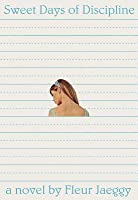
“At fourteen I was a boarder in a school in the Appenzell.” Thus begins this short, sharp novel by Jaeggy, an award-winning Swiss author who writes in Italian. Appenzell is a canton in Switzerland.
I thought of other novels I’d read set in boarding schools, but realised this was going to something altogether different when I read the next sentence: “This was the area where Robert Walser used to take his many walks when he was in the mental hospital in Herisau, not far from our college.”
Walser was a German-speaking Swiss writer, an early Modernist admired by Kafka and Hesse, whose plotless stories convey the somber gravity of life. In one story he says, “Ultimately, the most romantic thing is the heart, and every sensitive person carries in himself old cities enclosed by ancient walls.”
Our narrator is enclosed by the strictures of boarding school life, having been in one or another since she was eight and her grandmother sent her away for being too wild, too savage. Her parents are separated, her mother in Brazil writes only to the headmistress giving orders such as that she is to have a German roommate. Her father, cold & distant, lives in hotel rooms, visiting her rarely.
This unwanted girl becomes fascinated by a new student: the silent and aloof Frédérique. She mounts a campaign to “conquer” Frédérique and force her into friendship. The violence of the narrator’s feelings contrasts with the strict controls imposed by the school—“Obedience and discipline set the tempo at the Bausler Institut”—and with Frédérique’s own outsized love of order.
As part of her campaign, the narrator pretends to be interested in Expressionist art and French literature, but confides to us “I postponed any serious thinking until I was out in the world.” This was exactly what a woman told me in a class I taught in a prison. It made sense to me then and makes sense to me now reading about this young woman who is desperate to break free and live her own life.
You must always say thank you, even when they have refused you something. Part of your education is learning how to thank with a smile. An awful smile. There is a mortuary smell to even the youngest and most attractive girls. A double image, anatomical and antique, In the one the girl runs about and laughs, and in the other she lies on a bed covered by a lace shroud. It’s her own skin has embroidered it.
The style of the book challenges today’s common writing advice to write in scenes, to show not tell. There are no scenes here, yet the narrator’s telling is irresistible. It is her voice, her feelings, and her judgments that carry the story.
The narrator’s ferocity and emotional swings can be unnerving, such as one minute wanting to literally strangle her roommate and the next laughing with her in their shared washroom. The austere beauty of the prose and the free association of the narrator’s thoughts make this a startling read.
Can you recommend a novel by a Swiss author?